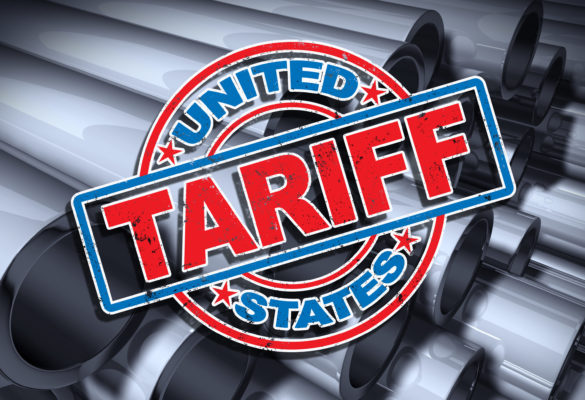Investors had plenty to be jittery about with the DOW plunging 772 points and the other indices down 2 percent to 3 percent. Despite the media harping, it was about more than just the Trump tariff announcements.
Last week was a multi-day plunge on Wall Street and if you listened to the mainstream media, Donald Trump’s announcement on Thursday of a 25 percent tariff on imported steel and 10 percent on aluminum was the source of the market’s woes.
But as Barron’s points out, that conveniently overlooks the 300 point drop on Tuesday when Fed Chairman Jerome Powell announced that a surging economy might need four, not three interest rate hikes this year. Between Tuesday and Thursday the market cratered 380 possibly because rumors flew that the Senate might not pass legislation to repair the nation’s crumbling infrastructure, critical to transportation of commerce.
Last month the selloff was linked to rising bond yields and suddenly surging wages, with fears of inflation stirring.
The fact is that the market has been so overvalued for so long that any number of factors would give the investors a reason to head for the exit. This is the second longest running bull market in history, price to earnings ratios have been badly skewed and margin debt at very unhealthy levels. Given these shaky vital signs, interest rate hike threats alone posed a threat, much less fears of an international trade war triggered by tariffs.
The tariffs were a jolt the market wasn’t expecting…and who would have been? Almost immediately global markets reacted badly and some countries’ leaders threatened tit-for-tat tariffs of their own against U.S. goods. Some analysts are saying that the tariff will raise the cost of some consumer goods, negating some of the benefits of the recent tax cut.
It is still too early to say whether a trade war could develop. If the economy slows, the Fed might rethink the number of interest rate hikes, which could recalibrate back toward the positive.
Jerry has been saying for some time that the economy was finally becoming more vigorous under Donald Trump, but that a return to 1970s style inflation, or the “fire” phase that he predicted in his book “From Boom to Bust and Beyond”, was getting closer. We are also overdue for a recession, although a period of improvement is more likely in the immediate future.
The Four Most Ominous Words in Economics and Finance
Be sure to listen to the February 24th edition of Jerry Tuma’s Smart Money Radio. Jerry covers why Alan Greenspan thinks we will see a return stagflation. And do you know what the four scariest words are in economic and financial policy? “This time it’s different.” Jerry talks about how that thinking is the prelude to a crisis.

